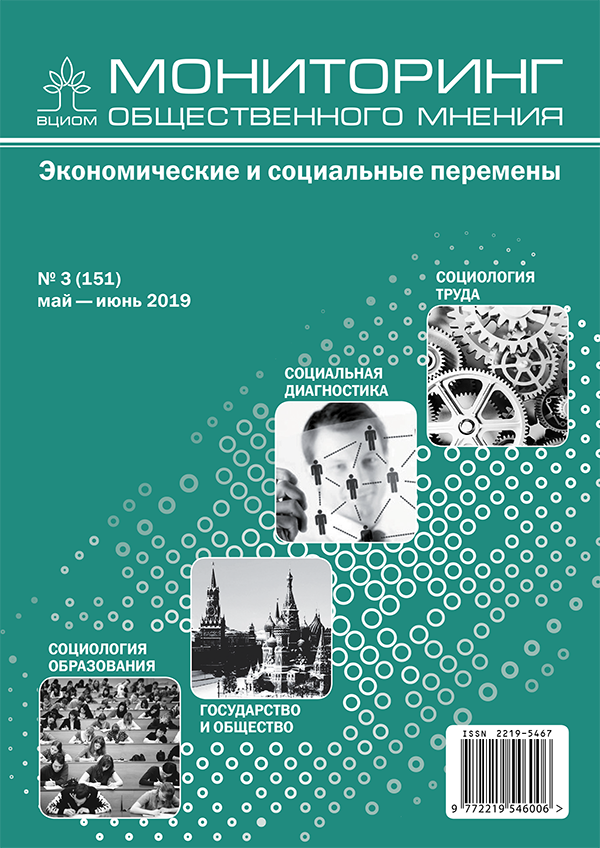Inequality of Life Chances in Work-Life Balance of Russians
DOI:
https://doi.org/10.14515/monitoring.2019.3.18Keywords:
work-life balance, non-monetary inequality, life chances, life success, positive privilege, negative privilege, social consciousnessAbstract
The possibility of achieving a work-life balance can be considered as one of the types of life chances related to quality of life. The article is based on the empirical data of all-Russian representative monitoring carried out by the Institute of Sociology FCTAS RAS and examines major inequalities in possibilities to achieve work-life balance in general and in particular spheres. A special attention is paid to non-production activity. The author argues that the work-life balance inequalities do not smooth out other monetary and non-monetary inequalities in life chances (especially those related to the economic sphere); on the contrary, they exacerbate them. The author concludes that Russia is dominated by the vertical stratification; any changes in non-monetary inequality dealing with lifestyles superpose on it and do not become a basis for horizontal stratification. Achieving a work-life balance in Russia is a sign of general social well-being in vertical hierarchies in other economic and non-economic possibilities. The article also describes the general context of the work-life balance concept formation: in particular, it shows that social perceptions of life success remain rather traditional and are mainly connected with the implementation of achievable and complementary, as the public sees it, goals in social and professional spheres.
Acknowledgement. The study is funded by Russian Science Foundation (project no. 17-78-20125).






